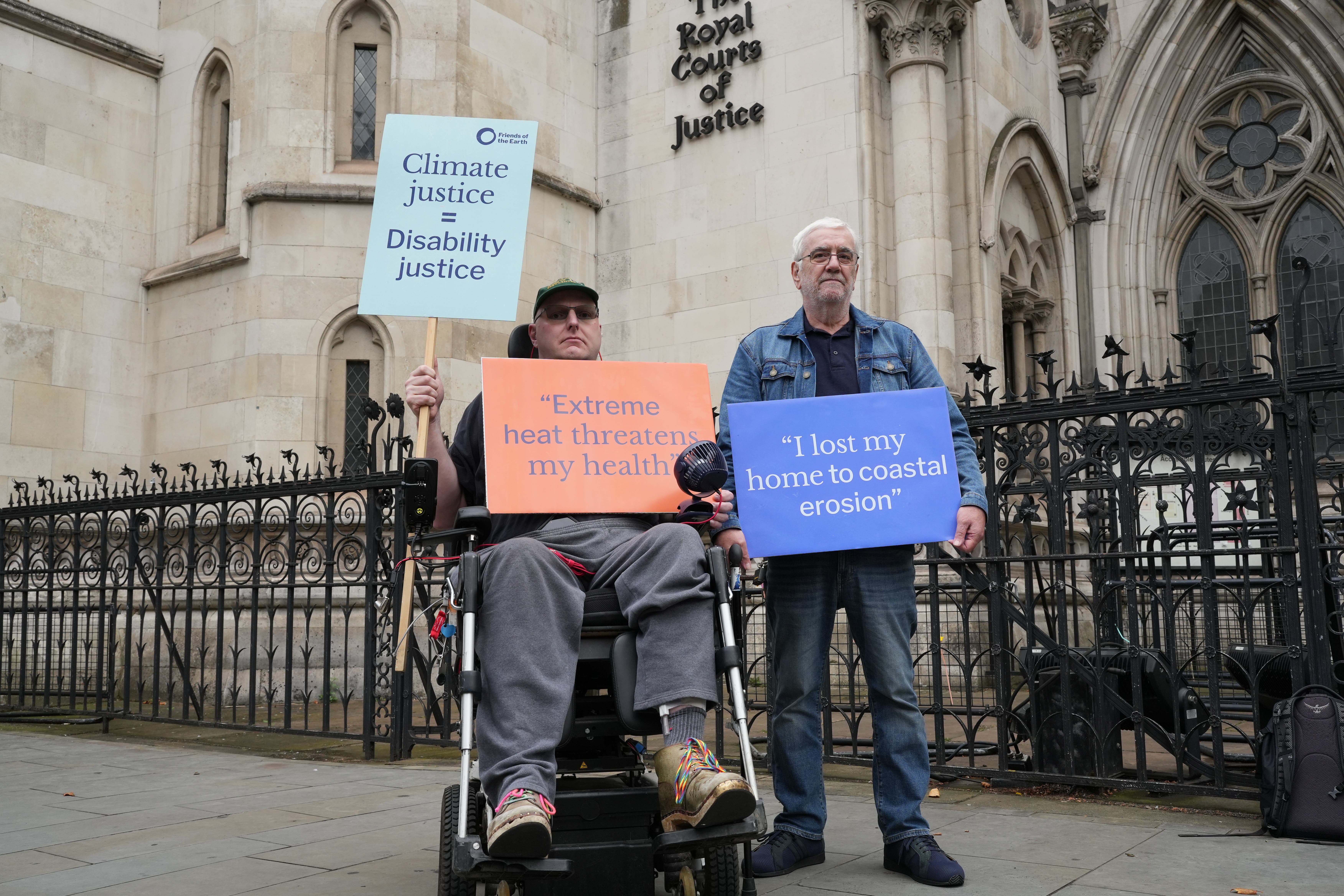Campaigners lose legal challenge against government climate change plan
Campaigners had challenged the government’s National Adaptation Programme, claiming it was ‘deficient’.

Campaigners have lost a High Court challenge against the government over its plan to adapt to the risks posed by climate change.
Activist Kevin Jordan and disability campaigner Doug Paulley, along with environmental campaign group Friends of the Earth (FoE), challenged the former Tory government’s July 2023 National Adaptation Programme (NAP) at a hearing earlier this year.
Lawyers for FoE, Mr Jordan, who lost his home due to coastal erosion, and Mr Paulley, whose health problems are exacerbated by severe heat, told the court in July that the plan was “deficient” as it fails to properly respond to 61 climate change risks, and should be quashed and rewritten.
The Department for Environment, Food and Rural Affairs (Defra) opposed the challenge.
In a written ruling on Friday, Mr Justice Chamberlain dismissed the claim, stating there was no “error of law”.
Mr Jordan was made homeless shortly before Christmas 2023, after his house in Hemsby, Norfolk, was demolished after coastal erosion put it in severe danger of falling into the sea.
He said before the hearing: “The Government’s adaptation plans are completely inadequate for dealing with the threat that climate change poses to people and the economy.”
Mr Paulley, who lives in a care home and has health conditions that are being exacerbated by increasingly hot summer temperatures, previously warned disabled communities were “disproportionately affected” by climate change and that he was “fearful that in an emergency disabled people won’t be properly protected”.
The evidence establishes that ‘delivery risk’, in the sense of uncertainty in relation to whether particular proposals and policies would achieve what they set out to achieve, was considered at various stages
David Wolfe KC, for the campaigners, previously told the court in written submissions that the NAP, which is required every five years under the 2008 Climate Change Act, “perpetuated” ministers’ “history of failure in climate adaptation”.
He said the plan failed to respond to risks posed by high temperatures, coastal flooding, erosion and extreme weather events, and other challenges caused by changing climate conditions.
He also claimed the Government failed to consider the risks to the delivery of the policies and proposals in the NAP, resulting in the plan leaving British people, especially the vulnerable, “subject to specific threats or adverse effects of climate change on their life, health, well-being and quality of life”.
Mark Westmoreland Smith KC, for Defra, said in written arguments that the campaigners’ case was based on “fundamental factual errors” and was an “unfair characterisation” of the approach taken by ministers.
He said the Environment Secretary – a role currently held by Labour’s Steve Reed – had “broad discretion” over the NAP’s objectives and was “politically accountable to Parliament for them”.
Mr Westmoreland Smith said consideration of the “uncertainties” for addressing risks was “hard-wired” into NAP and “clearly taken into account” and that “factors related to delivery such as current policy status, funding, timeframes and constraints, and ‘achievability of actions’ were considered throughout”.
In his ruling, Mr Justice Chamberlain said that the government did consider the “equality impacts” of the plan and the risks to implementing it.
He said: “The evidence establishes that ‘delivery risk’, in the sense of uncertainty in relation to whether particular proposals and policies would achieve what they set out to achieve, was considered at various stages.”
Bookmark popover
Removed from bookmarks